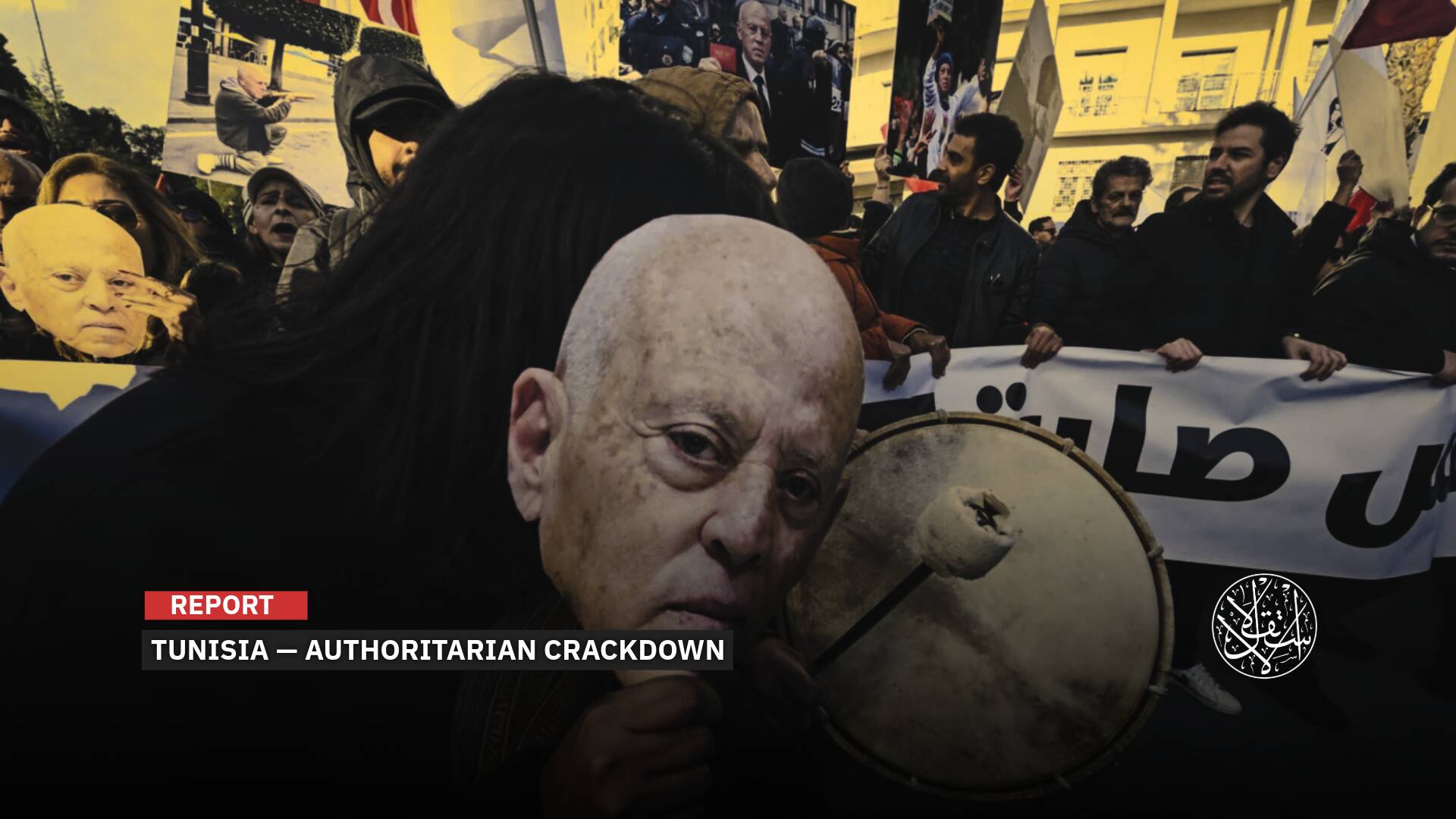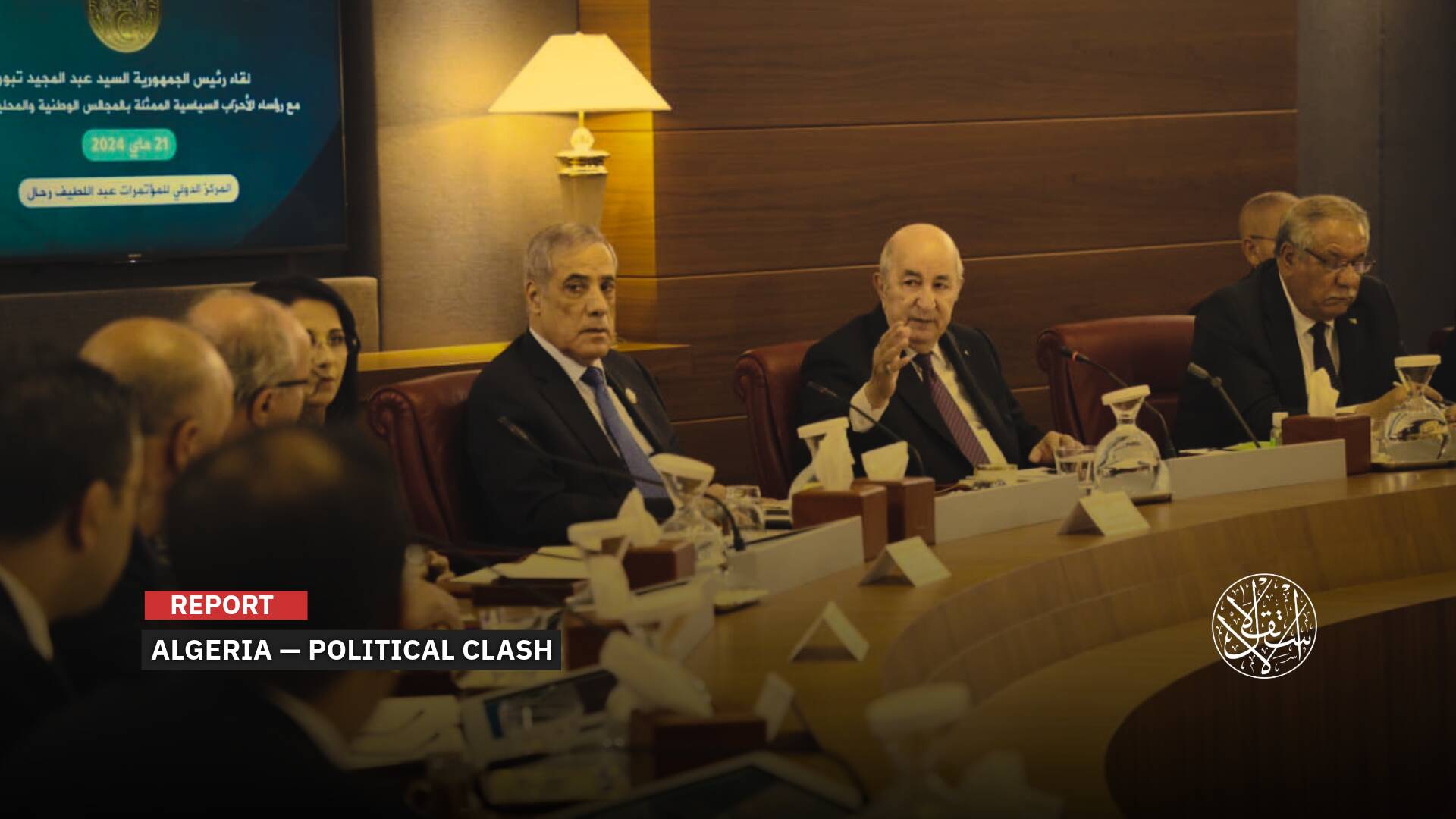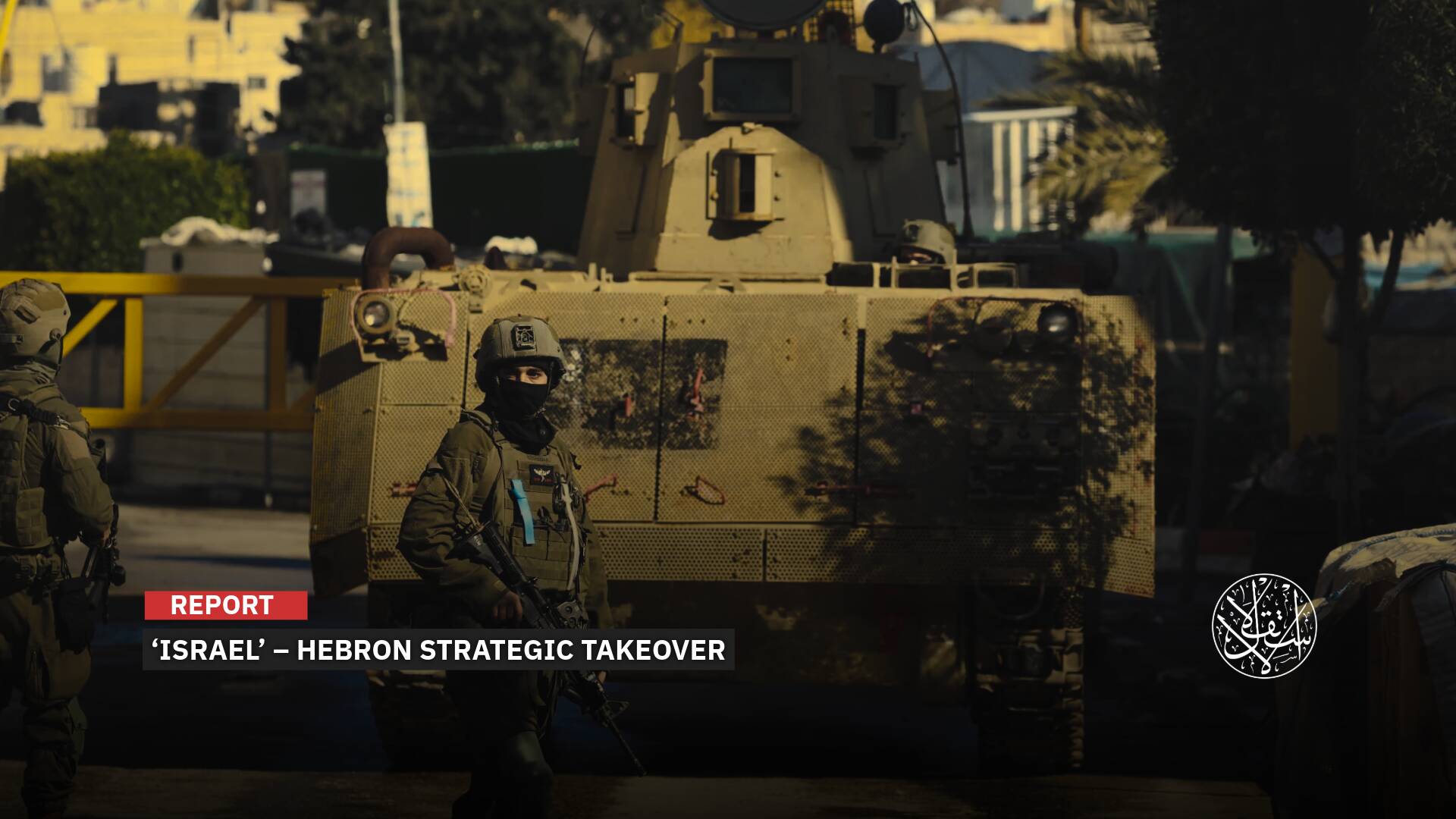Despite Pressures and Threats: How Pro-Palestine Protests Swept U.S. Universities

“Student protests are currently ongoing in at least 30 university campuses across the United States.”
Universities in the United States have become a major arena for discussion and action against the backdrop of the ongoing Israeli war on the Gaza Strip since last October 7, especially in light of the great American political and military support for "Israel."
Over the past months, universities there have struggled to balance their goals of protecting free speech and combating anti-Semitism since the outbreak of war in Gaza, which has proved a political minefield.
Last December, three U.S. university presidents who testified before Congress were accused (if not fairly) of being too permissive of free speech in the face of anti-Semitism or being too legalistic in their explanations of their situation.
Dozens of American universities have witnessed a tense atmosphere over the past days due to the escalation of pro-Palestinian student protests and against the Israeli war on Gaza, amidst cases of arrest and suspension of studies against dozens of students, in addition to politicians entering the crisis line.
Pro-Palestinian activities at several universities, such as Harvard and Columbia, have been met with warnings of growing anti-Semitic movements, especially since many of the country's major universities depend mainly on financial support from Jewish organizations and funders.
The pro-Palestinian protests also attracted students and faculty from different backgrounds, including Islamic, Christian, and Jewish faiths. Among the most prominent groups organizing the protests are: Students for Justice in Palestine and Jewish Voice for Peace.
Most of the student movement in American universities calls for a permanent ceasefire in Gaza, an end to American military aid to "Israel," divestment of university investments from companies that benefit from the war, and lifting of the suspension of students and faculty members who were subjected to disciplinary measures or expulsion due to protest.

Student Protests
The protests of American university students began about ten days ago with the establishment of a solidarity camp with Gaza on the campus of Columbia University in New York City, before expanding to include other universities such as the Massachusetts Institute of Technology (MIT), Yale, and others.
Participants in the protests at Columbia University called for severing ties between the prestigious academic institution and "Israel."
More than 130 of them were arrested after university authorities called on the police to come to the private campus, in a move that appears to have escalated tensions and prompted a larger number of people to participate in the protests.
On April 22, Columbia University President Nemat Shafik ordered that lessons be taught online, after disturbances witnessed on the university campus, while the protests spread to other universities throughout the United States.
Elsewhere in Boston, student protesters set up camps at Emerson College, MIT, and Tufts University.
The University of North Carolina also briefly set up camp on campus before being told its tents were in conflict with university regulations.
Yale police arrested more than 60 protesters on April 22 after giving them several opportunities to leave and avoid arrest.
Demonstrators also set up more than 30 tents in the central part of the University of Michigan campus, while 9 anti-war students at the University of Minnesota were arrested after police removed a camp two hours after it was set up in front of the library.
On April 24, other universities witnessed student protests, including Brown University in Providence, the University of Michigan in Ann Arbor, California Polytechnic University in Humboldt, and Harvard University in Cambridge.
In Texas, police broke up a protest at the University of Texas at Austin on April 24, arresting 20 people.
On April 24, University of California, Los Angeles (UCLA) students set up tents in Sproul Plaza to continue their call for the university system to stop indirect funding of "Israel" and establish a Palestinian studies program.
The University of Southern California announced the closure of its campus and asked the Los Angeles Police Department to break up the demonstration, where the police arrested 93 people.

American Denunciation
On April 22, Democratic President Joe Biden said he denounces anti-Semitic protests and those who do not understand what is happening with the Palestinians.
However, the escalation of the student protests put pressure again on the White House, whose spokeswoman, Karine Jean-Pierre, said that President Biden believes that free speech, debate, and nondiscrimination on college campuses are important.
She added in a press conference on April 24: "We believe in people being able to express themselves in a peaceful manner. But when we're talking about hateful rhetoric, when we're talking about violence, we have to call it out."
The Speaker of the U.S. House, Mike Johnson (Republican), also condemned the virus of anti-Semitism, calling on the president of Columbia University to resign.
On April 24, Johnson visited Columbia University amidst booing from student protesters, as he said the goal of his visit was to support Jewish students who were being intimidated by some anti-"Israel" demonstrators.
New York Mayor Eric Adams expressed his horror and disgust at reports of anti-Semitism at Columbia University, vowing that police would stop anyone who broke the law.
Student movement organizers from the Columbia University camp criticized Biden and Adams' statements and allegations of anti-Semitism, saying that some of the organizers were Jewish and pointing out that the right-wing media focused on troublemakers who do not represent the protests in any way.
Two Republican senators from the U.S. Congress, Josh Hawley and Tom Cotton, also called for the use of National Guard units to confront anti-"Israel" activists at Columbia University.
"What's happening at Columbia isn't a protest: it's a violent, pro-Hamas mob threatening and attacking Jewish students," said Mike Pompeo, the former U.S. Secretary of State.
The former Secretary does not see protests as a legitimate right for students and for everyone in a country whose leaders have always declared their desire to implement Western democracy in the rest of the countries of the world, and have always been proud of the importance of democracy and its role in developing societies.
It is noteworthy that in previous times, student protests were a major reason for changing the public and foreign policies of the United States. The revolution of American university students, among other reasons, caused the cessation of the war on Vietnam (1966–1969).
Perhaps the most important thing about what is happening is that the Study International website considered these university demonstrations among the three most important student protests that changed history.

Israeli Calls
Israeli Prime Minister Benjamin Netanyahu deemed pro-Palestinian protests in American universities appalling, accusing anti-Semitic mobs of taking control of prominent universities.
He also pointed out that the protests are demanding the elimination of "Israel," attacking Jewish students, and attacking Jewish faculty members, which reminds us of what was happening in German universities in the 1930s.
A recorded speech broadcast on April 24 called for more to be done to address the pro-Palestinian protests that spread to American universities.
Israeli minister of army Yoav Gallant said that the protests taking place at universities in the United States are not only anti-Semitic, but also incitement to terrorism.
Gallant called for an end to the demonstrations in support of the Gaza Strip at American universities, stressing the need for the American authorities to take action to protect the Jews and stop the demonstrations.
The Israeli Occupation's far-right National Security Minister Itamar Ben Gvir said that "diaspora Jews are currently suffering from a harsh wave of anti-Semitism in communities and on campuses in the U.S., Europe, and around the world."
"I asked the police commissioner to draft a plan to aid in the creation of local response teams that will protect Jewish communities and institutions overseas, especially in countries where Jews suffer from anti-Semitism," he added.

On its part, the Jewish Voice for Peace organization said that Columbia University and Barnard College have created a climate of oppression and harm for students who are peacefully protesting in order to put an end to the Israeli genocide against the Palestinians in Gaza.
Amnesty International noted that protests in support of Palestinian rights in and around college campuses have been met with obstructive and repressive responses by university administrations.
"Instead of facilitating and protecting their students' right to protest, universities' administrations have gone to great lengths to quash it, even involving local authorities and demanding arrests," it said.
In turn, Washington-based activist Omar Taha said in a statement to Al-Estiklal that "the current battle, as summarized by Benjamin Netanyahu in his most dangerous statements, is a battle of existence, and is not limited to Israel only, but will affect all countries of the world.
"The war has reached the heart of America and has become an important axis of the upcoming presidential elections, especially in the major American universities from Harvard to Columbia, California, Yale, and others," he added.
"Congress's interference, interrogation, and insults of presidents of major American universities, such as Claudine Gay (Harvard), Liz Magill (Pennsylvania), and Sally Kornbluth (Massachusetts Institute), in addition to pushing some of them to resign or actually being fired, this is evidence that the student movement is on its way to transforming into a massive student revolution throughout the United States," the activist said.
Mr. Taha concluded, "The battle today is an awareness and conscience that expresses a new generation that has not participated in wars, has not joined revolutions, and does not know much about the Palestinian issue, but knows a lot about the suffering of the Palestinian people and the genocide carried out by the Israeli Occupation over decades against the Palestinians who own the land and struggle."
Sources
- April 24, 2024 - US university protests
- Universities Struggle as Pro-Palestinian Demonstrations Grow
- What the backlash to student protests over Gaza is really about
- A look at the Gaza war protests that have emerged on US college campuses
- Elise Stefanik, all NY House GOP lawmakers demand Columbia President Minouche Shafik resign immediately
- Over 100 students arrested in California, Texas as Gaza protests intensify
- Ben-Gvir considering: Israeli-backed security response teams for diaspora Jews









